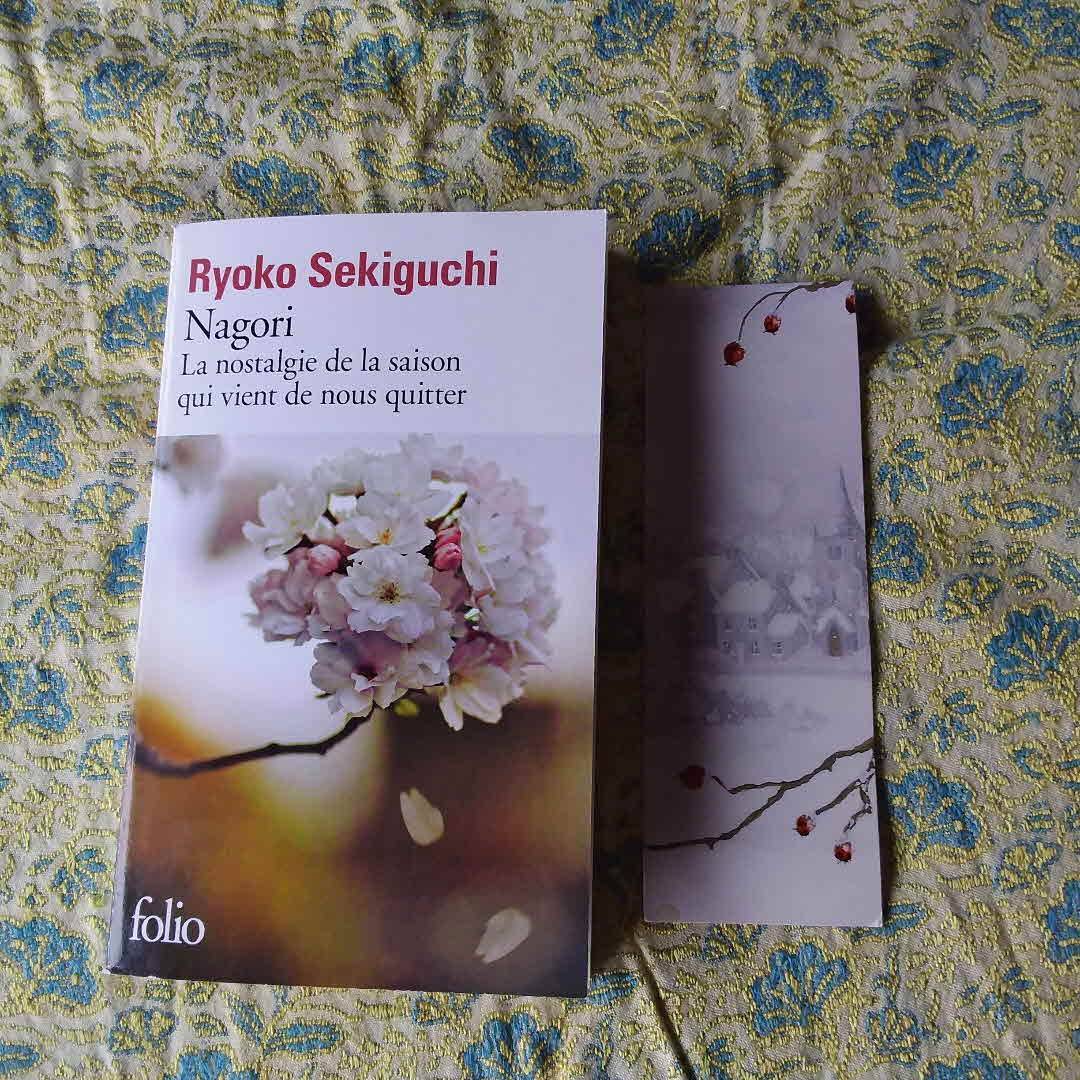
Sekiguchi is a Japanese poet, translator, artist and food writer.
I loved her essay about nagori (definition below) so much when I read it in 2019, I knew when I returned it to the library that I'd have to get my own. And now I do. I love it just as much on its second read 😁. It's about food, poetry, nature and seasons, cultural habits, and language: that's about 3/4 of my interests all in one book!
@Butterfinger, @Texreader, @Catsandbooks



















I think my bookmark with autumnal rosehips in a wintery landscape is a perfect example of what she describes.
Sekiguchi explains how some Japanese cooks like to build a dish around a food coming into season, one in full season, and one about to go out of season (or one that keeps or is preserved).
(edited) 3y
ETA: I see there is a German translation: Nagori: Die Sehnsucht nach der von uns gegangenen Jahreszeit. I'll keep my fingers crossed for an English version.
#foodandlit #foodandlit2022 #Japan